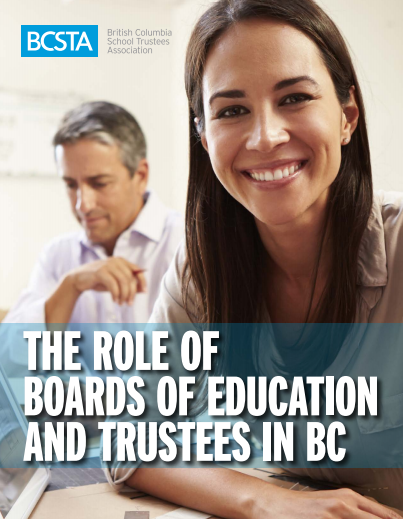What do Trustees do?
British Columbia is a large province with many communities, each having different priorities, needs and unique educational requirements. British Columbians elect their boards of education to improve student achievement according to the diverse needs of these communities.
As locally elected representatives, the trustees on these boards best understand their respective communities’ particular strengths, challenges and demands.
Trustees engage their communities in building and maintaining a school system that reflects local priorities, values and strategic goals. School trustees listen to their communities, guide the work of their school district and set plans, policies and the annual budget.
Reflecting the strength of local representation, boards report back to their communities on how students are doing. Boards are directly accountable to the people they serve.
What are the roles of boards of education and trustees?
Boards of education share a co-governance relationship with the provincial government through the Ministry of Education and Child Care. BCSTA supports member boards in this relationship.
The Ministry of Education and Child Care sets the general direction for K-12 education, including the curriculum, funding amounts and the legal framework within which boards operate. Boards are responsible for governing school districts based on the educational aspirations of their local communities and in accordance with the policy direction established by government.
Members can refer to BCSTA’s Learning Guide on the Portal (BCSTA’s members area) for comprehensive details of boards’ roles and responsibilities.


